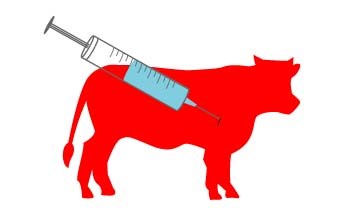The word hormones when it comes to use in agriculture, is becoming one which creates an emotional response in consumers.
It is quite normal today to turn on the television and see an advertisement where some restaurant, or food brand, is advertising ‘no added hormones’. The leap of faith such ads hope the consumer will make is that the food is better than an alternative where horns have been given.
Beef is a prime example.
For years many feedlots have used a growth hormone implant which improves economic traits such as average daily gain and feed conversion, to help the facility realize a better return.
Animals with the implants generally grow faster, and convert feed better, which of course helps lower the cost of producing a pound of beef.
It has been a decades-long reality in the industry, which is now being questioned by at least some consumers.
Now it needs to be recognized the perception of consumers as to what is and isn’t safe might be a somewhat suspect measure of the true danger.
There was after all consumers in the day who balked at the idea of pasteurization of milk.
And there are consumers today who are backlashing against the idea of disease immunization protocols, although when I was a mere youngster the idea of there being a vaccination against diseases such as smallpox and tuberculosis was seen as massive steps forward in general health.
So the worry today over beef hormones, or similar on-farm procedures to produce food more efficiently seem rather unfounded.
Of course it comes down to how the questions of food safety are put to people.
Asking a consumer on the street ‘do you feel the burger they purchase at a particular restaurant is safe?’ is going to illicit a significantly different reaction than ‘would you prefer beef which has not been treated with added hormones?’
The second question in being asked leads one to think that there is a concern over beef from cattle which have had hormone implants. Why else would the question even be brought up?
Of course growth hormones are something all animals produce normally, with the levels of production not always being constant.
Dr. Aaron Gibbons recently spoke to the Lethbridge branch of the Alberta Institute of Agrologists. In a Western Producer article on his talk he explained, “Cattle hormones consist of estrogen and a type of testosterone … Beef from a steer without implants contains eight nanograms of estrogen per pound — a nanogram is one-billionth of a gram — while beef from an implanted steer has 11 nanograms per lb.
“Levels are similar in implanted versus non-implanted heifers. Beef from a pregnant heifer has 700 nanograms per lb.
“For comparison purposes, he said one birth control pill contains 35,000 nanograms of estrogen, which is the equivalent of all estrogen from 5,500 lb. of beef from implanted steers.”
When you look at such numbers the question which should be being asked is why advertising is focusing so much attention on hormone at present?
The answer I suppose is rather obvious. Advertising is as much about creating ‘feelings’ with consumers as anything else. Your favourite running shoes are selling you an image since let’s face it the general difference between a $40 pair and a $200 pair of sneakers comes down to glitzy ads and $140 bucks, and not a lot more.
Is beef from animals not having had implants tastier? I’d suggest few would tell a difference.
Is it safer?
Well that is the perception being put forward in the ads.
But in the aforementioned story Gibbons said hormones have been used in the livestock industry for 50 years and there are no known ill effects from their use.
It is a case of consumers being led to a specific conclusion without taking the time to look past the word hormone, which they have begun simply to assume is bad. We should hope the public delves a bit deeper into the science to learn what they eat is still safe.
Calvin Daniels is Assistant Editor with Yorkton This Week.

